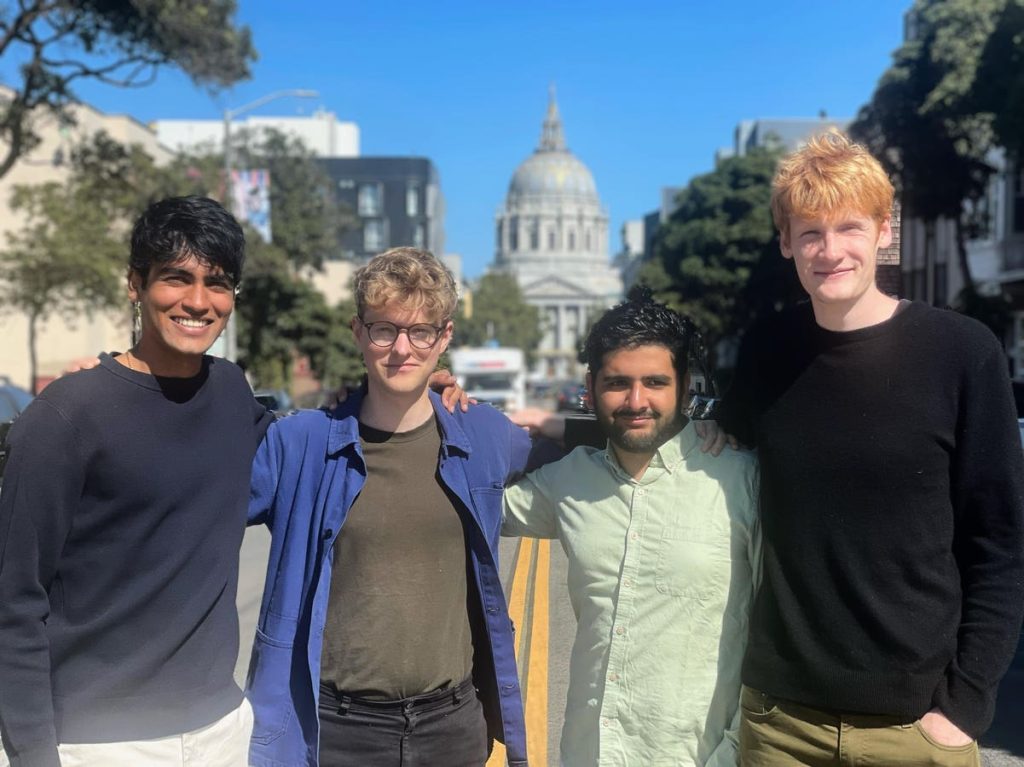In a recent video posted on X, Faraday Robinett, the eight-year-old daughter of Cloudflare Vice President Ricky Robinett, showed how to build a chatbot that answers questions in the style of Harry Potter. She did this by simply typing text-based prompts into an AI coding tool called Cursor, asking it to add a text box that says “Chat with Harry,” show the previous conversations with the chatbot and change the background design.
“If it does work, it’s going to be so cool,” she said enthusiastically as she waited for Cursor’s AI to add a spinning lightning rod icon below the text box. In a few seconds, the AI tool complied.
The young, novice coder isn’t the only programmer who has been drawn to Cursor’s code editing and autocompletion tools. Engineers at leading AI startups like OpenAI, Midjourney, Perplexity and Scale AI, as well as tech companies like Shopify and Instacart, are among the 30,000 customers who pay $20 or $40 per month to use Cursor’s AI tools to write and edit entire chunks of code.
Cofounded in 2022 by four friends who met at MIT, Cursor announced on Thursday that it has raised $60 million in a Series A funding round led by Andreessen Horowitz with participation from Thrive Capital, OpenAI Startup Fund and Google Chief Scientist Jeff Dean. With the new investment, the startup is now valued at $400 million, according to a person familiar with the terms of the deal. The company has more than $10 million in annual recurring revenue.
Cursor’s fundraise comes as investors have plowed millions of dollars into the increasingly crowded AI coding market. . While some companies, like $2 billion-valued Cognition Labs, have launched AI-powered software engineers that aim to carry out entire engineering tasks without any human help, others like Codeium, valued at $500 million, have built systems capable of processing large amounts of code at once.
But Thrive Capital Partner Miles Grimshaw said most of these AI coding startups have largely built “bolt-ons” that can be layered on top of existing applications used by developers instead of creating new interfaces better suited for AI-related tasks like training models.
That’s where Cursor’s comes in. The company is building a new type of “code editor”— an application where engineers can write and tweak code or a “Google Docs for programmers,” as Cursor CEO Michael Truell puts it. The code editor incorporates AI models that are built on top of large language models like OpenAI’s GPT-4 and Anthropic’s Claude and can automatically predict, write and edit parts of code.
Cursor’s software has been widely adopted by engineers at AI startups. Shyamal Anadkat, an OpenAI engineer who works with startups to build products on top of GPT models, said he uses Cursor for fixing bugs and building prototypes. “It’s been game changing for overcoming the cold start problem,” Anadkat told Forbes, referring to the struggles of setting up a new application.
Truell and his cofounders have been closely tracking the advancements in artificial intelligence at OpenAI since 2020, before ChatGPT was even launched. So they knew the space was poised to grow, Truell said. The idea for building an AI coding startup came after they witnessed the success of Microsoft GitHub Copilot, an early sign of the complex tasks that could be automated as AI models improved. “GitHub copilot was the first AI product that was actually useful. It wasn’t vaporware, it wasn’t behind a wait list,” he told Forbes.
Eventually, Cursor wants to build tools that can automate 95% of the more tedious work that engineers do, allowing them to spend more time on the creative aspects of coding.
“I think individual engineers very soon will be able to build systems that are much more complex than what powerful teams can build right now,” he said.
MORE FROM FORBES
Read the full article here






